NAMB Perspective: May 2016

 NAMB President’s Message: May 2016
NAMB President’s Message: May 2016
HR 2121: The SAFE Transitional Licensing Act
HR 2121, The SAFE Transitional Licensing Act. is purported to be a way to allow federally-registered loan originators to transition to state licensed loan originators over a 120-day period. It would allow them to originate loans without a license following a credit and background check. The reason for this bill is to allow independent mortgage bankers to recruit employees to make them competitive with federal banks. It seems they cannot compete without allowing for unlicensed origination. The federally-registered loan originators are not asking for the exemption.
The bill has many unanswered questions. What happens if the LO is not licensed in the 120-day period? Many originators that were unable or unwilling to pass the national exam went to work for the banks. In fact, many banks advertised to come work for them as no license was required. In addition to allowing federally-registered LOs to transition, the bill allows state-licensed originators a 120-day period to get licensed in another state. What prevents them for applying for another state license, doing their one loan in that state and dropping the license application? State regulators are not fond of unlicensed origination activity and this bill would require them to allow the transitional licensing and would eliminate their ability to have more restrictive requirements.
The proponents of the bill state that they have discussed with the Conference of State Bank Supervisors (CSBS) and they do not oppose. Not opposing is not the same as supporting. Many state regulators are not aware they are giving up some of their state authority through HR 2121.
The main issue is why is this needed when federally-registered LOs can easily get their license while still employed. It requires some extra time over their 40 hours at the bank, but it is attainable.
This legislation does not benefit most brokers, but small bankers that want to be able to quickly move into a new state and get underway immediately competing with those small business originators that took the time and energy to get licensed. If the transitioning originators do not get licensed, they will merely hire more transitional originators to take their place or have them start the process over with a new 120-day period.
HR 2121 disregards the SAFE Act that NAMB supported to end unlicensed activities. It does not help the consumer or the registered loan originator, but helps independent mortgage bankers to compete with banks and small business originators.
Sincerely,
Rocke Andrews, CMC, CRMS, President
NAMB—The Association of Mortgage Professionals
[email protected] ♦ JOINNAMB.com
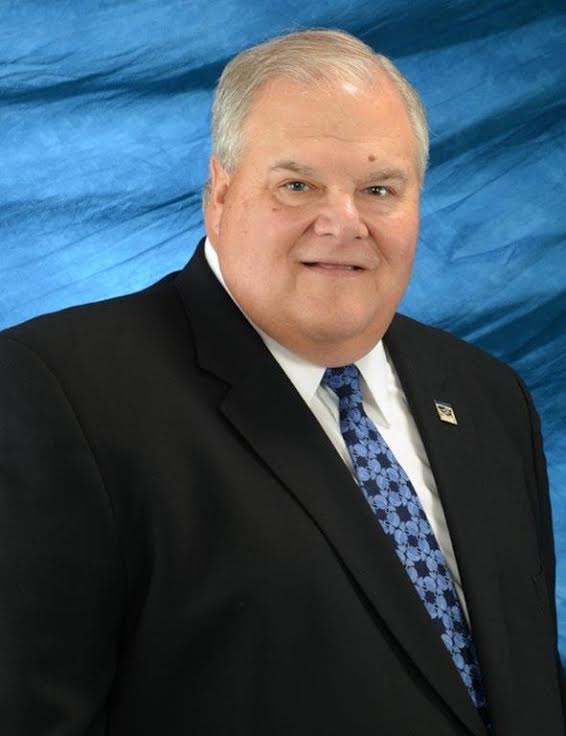 The CEO Perspective
The CEO Perspective
A Message From NAMB CEO Donald J. Frommeyer
This has really become an exciting time at NAMB—The Association of Mortgage Professionals. All of the board members, committee chairs and committee members are gearing up for a fantastic last half of the year. I cannot tell you yet what is going on, but NAMB is about to take steps to make being a member downright totally important to you, the mortgage originator.
As we are gearing up for our Nominations and Awards Committees to really kick it in gear, we are reaching out for new people to become involved. We had a great turnout at NAMB East in Hilton Head, S.C. and another great turnout at the 2016 Legislative & Regulatory Conference in Washington, D.C. So my question to you is … have you already looked at attending NAMB National in Las Vegas? Those dates would be Sept. 24-27, 2016 at the Luxor. This is our last year of the contract with the Luxor, and it will be one of the better ones dating back to 2004.
You might ask, why do we hold these conferences? To be truthful, it is to help you, the NAMB member. One of our missions for NAMB is to help you be a better originator and to do it at a reduced cost to you. So to put this into perspective … the cost of attending the conference should be approximately $595. But, the committee takes care of that for you by having the exhibitors give you free registration. We also host the conference at a destination city like Las Vegas and that means that if you get your ticket early, it isn’t that expensive. I got my tickets last week for $132 each way from Indianapolis, $264 round trip. The cost of the rooms average $50 per night. Just think, they are now asking for $140 per night if you are not in the NAMB Hotel Block. And what do you get? You get access to 70 exhibitors, great speakers, great breakouts, good friends and great networking opportunities. And in all of this, you can actually learn something, take your continuing education, have fun in a city that never sleeps, and be part of the great camaraderie of originators who make their livelihoods just as you do.
So do not hesitate. Information to register should be out right about now and you can be looking for those cheap flights to attend. I really hope to see you in Vegas.
Donald J. Frommeyer, CRMS is chief executive officer for NAMB—The Association of Mortgage Professional. He may be reached by e-mail at [email protected].
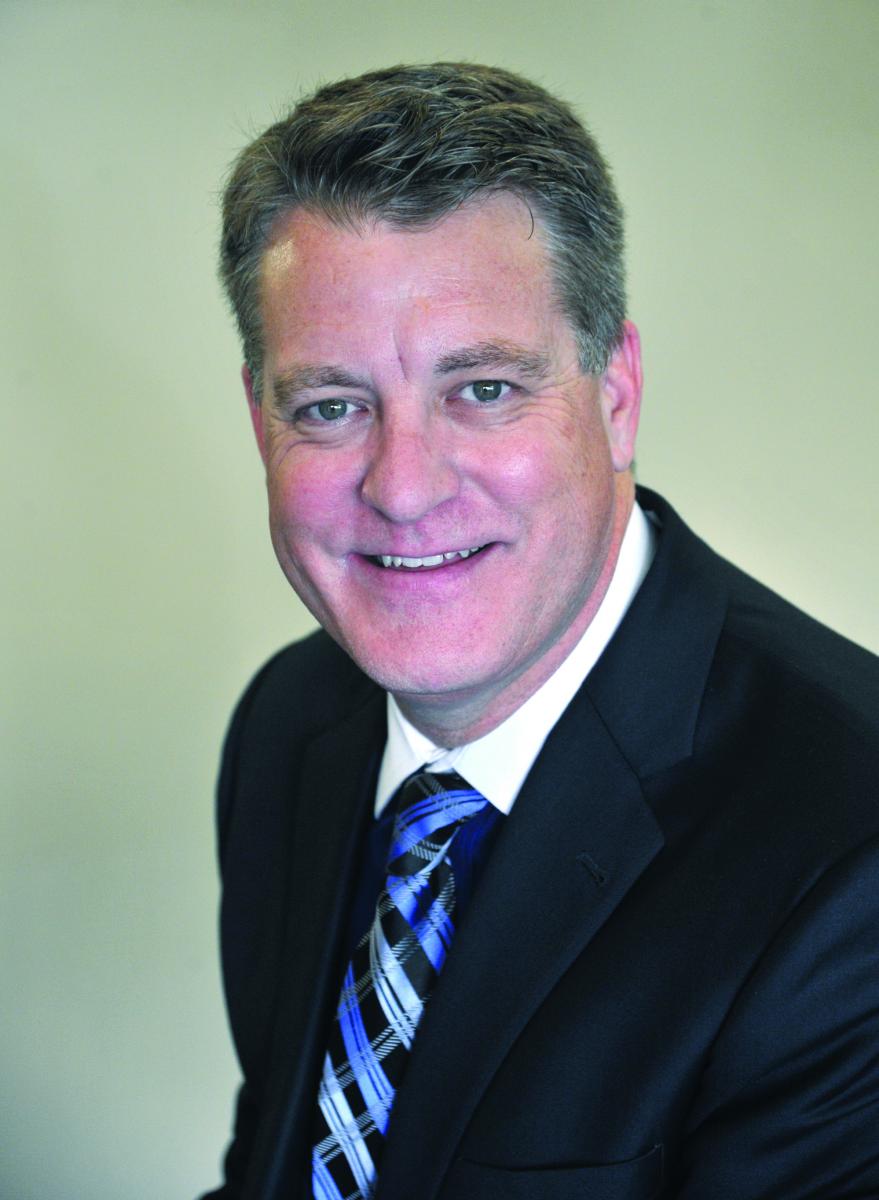 A Look Back at NAMB’s Legislative & Regulatory Conference
A Look Back at NAMB’s Legislative & Regulatory Conference
By Fred Kreger, CMC
LAX-DCA
This time of year is exciting for all of our advocates across the country. We are coming from all over the states to attend NAMB’s Legislative & Regulatory Conference in Washington, D.C. Throughout the years, I always start this article with a pre-event anticipation note.
At 30,000-feet, I am so looking forward to sharing thoughts as the leaders of our industry meet for the next couple of days. As “thought leaders,” we make that difference in our industry. We, as mortgage professional, are invited to the tables of decision-makers that shape our industry and help our clients.
This year, we have a packed conference, to make sure all of our leaders are well-equipped to talk to their members of congress and take back incredible information, to their states to help them run and advocate for their membership.
I wanted to also challenge everyone to be that participant in your industry. I have advocated for years that everyone that enjoys the fruits of the mortgage industry, should pay it back with association membership and participation. We all need to have gratitude for the opportunities that we all receive because of our career that place families into homes and satisfy their life goals.
DCA-LAX
Now flying home from the Legislative & Regulatory Conference. It certainly did not disappoint. It was great to spend time with friends around the country who have like-minded views, advocating on behalf of the mortgage industry. Our meetings on the Hill were received very well amongst our representatives and their staff. We, as the mortgage industry, advocate for our peers and clients, and have found out that there is a balancing act between regulator and legislator. Both need to dialog when it comes to client and industry advocacy. Our client’s stories need to be told to both groups of decision-makers. This is still something relatively new in D.C. I have to tell you that the process is faster, but takes some learning on all of our parts on how to navigate this new system of governance.
The Conference itself was even better and more successful with each coming year. I can see that, as an industry, we are getting stronger. More professionals see the need and find their place in becoming active within NAMB and their own state association. We sold out the Conference and the hotel. We are definitely looking into expanding the Conference next year with a bigger venue. This is always a great problem to have and fix. Make sure that you participate next year, because NAMB is going to make this event even bigger.
So what are you all waiting for? Join your state association, join NAMB, become a committee member, make a call to your member of Congress and GET INVOLVED. It really does matter.
Thank you all for all of your support and advocacy on behalf of the industry and your clients.
Fred Kreger, CMC is branch manager at American Family Funding, a Division of American Pacific Mortgage. He is a past president for the California Association of Mortgage Professionals (CAMP), and currently president-elect and Government Affairs Vice chairman for NAMB—The Association of Mortgage Professionals. He can be reached by e-mail at [email protected] or call (661) 505-4311.
Scenes From the 2016 NAMB Legislative & Regulatory Conference
April 9-13 in Washington, D.C.
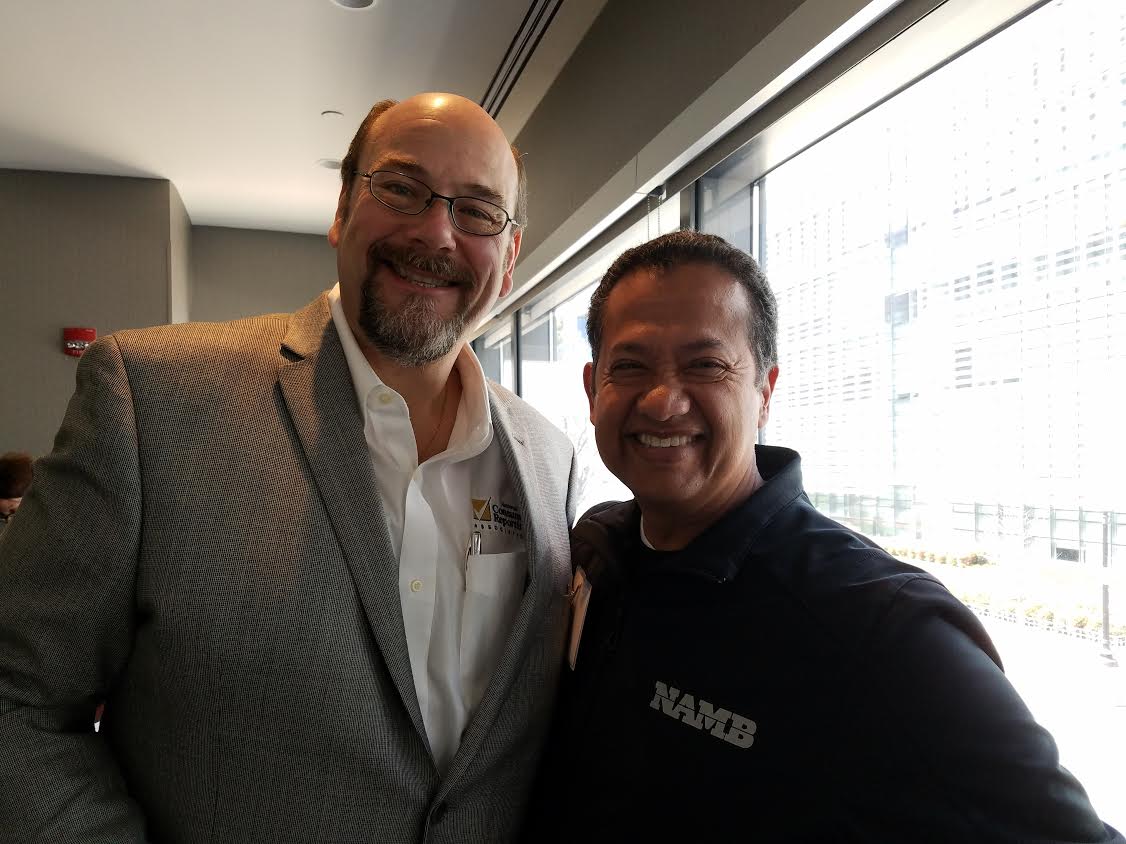
Terry Clemans, executive director of the National Consumer Reporting Association (NCRA), with NAMB Director David Luna
Brian Montgomery, former FHA Commissioner, and current vice chairman of The Collingwood Group details the latest news from the FHA
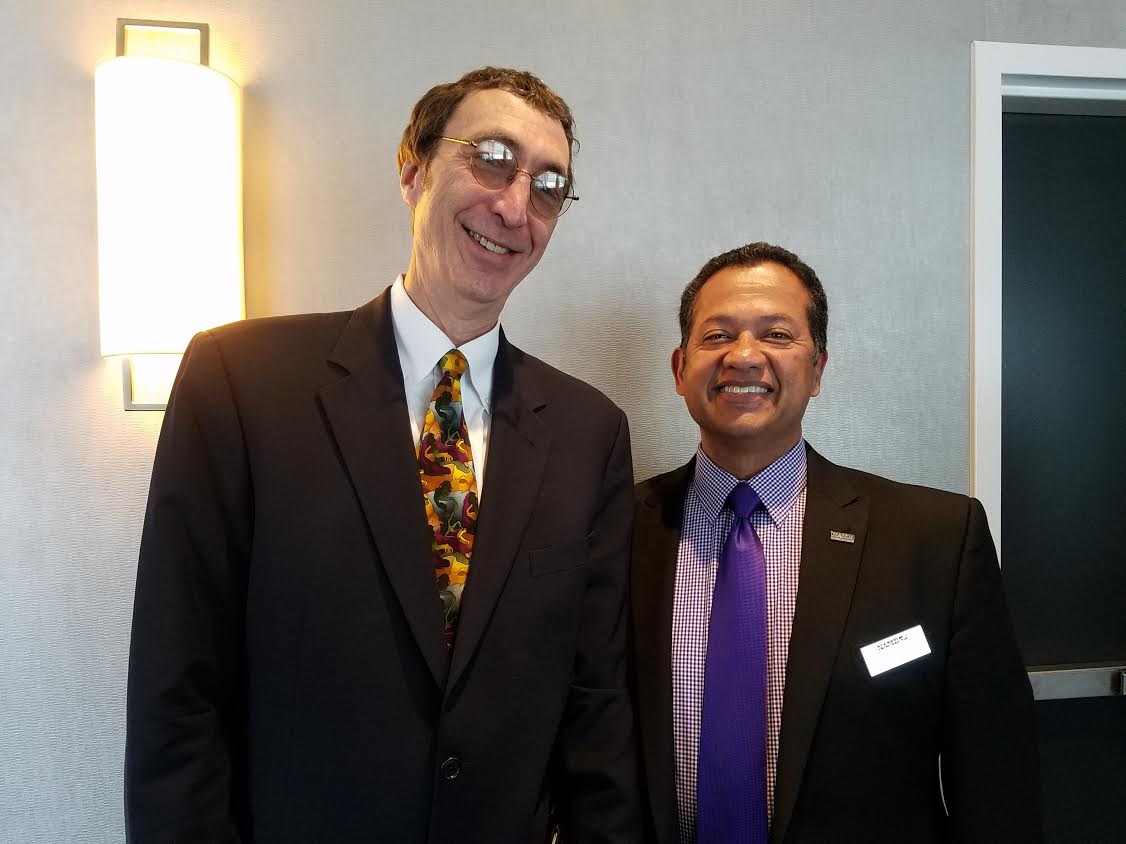
Paul Mondor from the CFPB’s Office of Regulations with David Luna
NAMBPAC Chair John Stevens details the work of the PAC on Capitol Hill
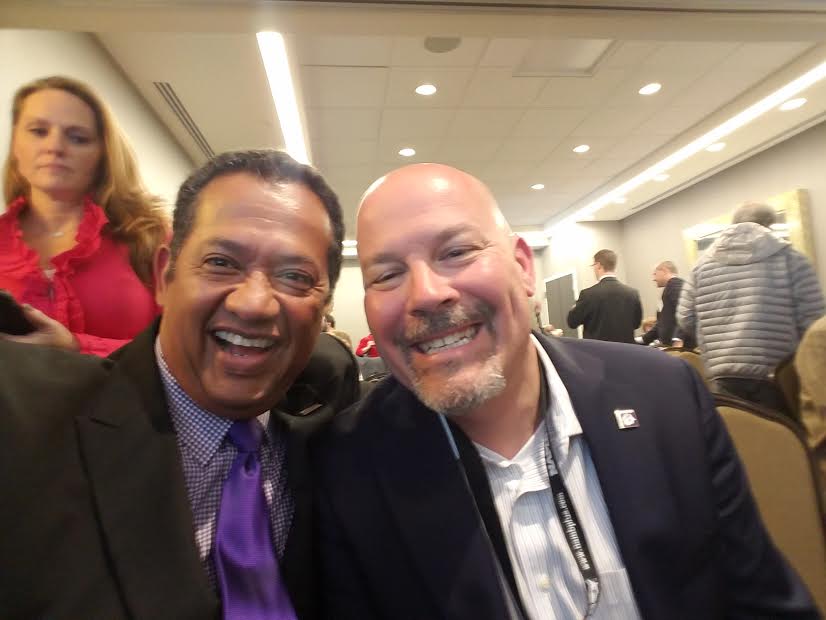
Dave Luna with Wayne King, president of the Greater Houston Association of Mortgage Professionals (GHAMP)
NAMB CEO Don Frommeyer welcomes attendees to D.C. for the 2016 Legislative & Regulatory Conference
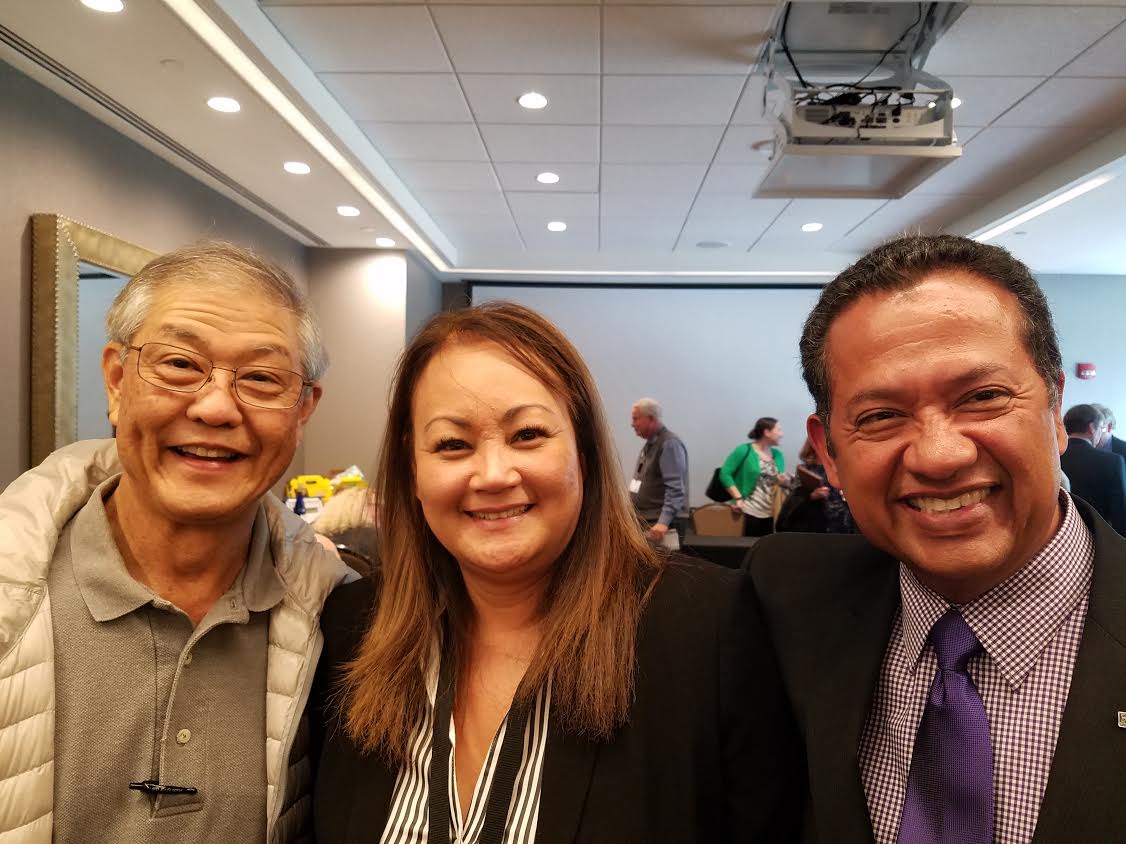
Dennis Oshiro and Cathy Lee from the Hawaii Association of Mortgage Professionals (HAMP) with David Luna
NAMB President Rocke Andrews briefs attendees prior to their trips to Capitol Hill
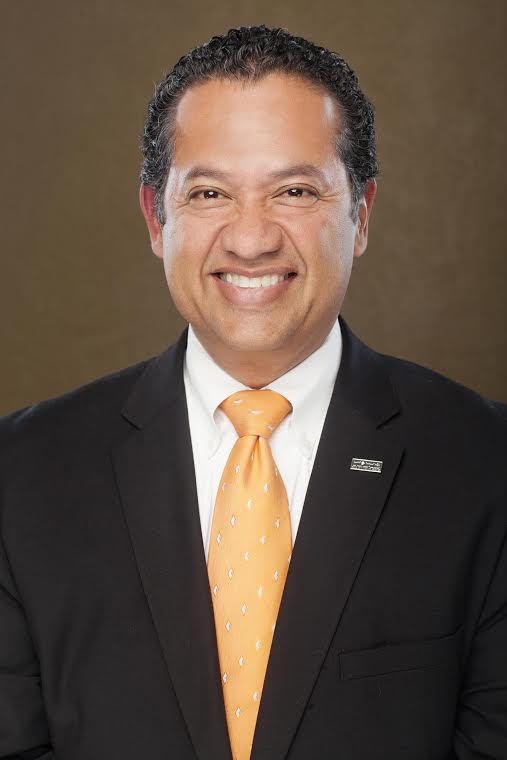 Living in the Digital World
Living in the Digital World
By David Luna, CRMS
When I started in the mortgage industry, we would dial the credit bureau, verbally request a credit report and the credit bureau would read the credit report to me, and I’d have to write as fast as I could what would be read to me on paper. How happy I was when telex machines, whisper writers and then thermo-fax paper came out. Well, we’ve come a long way in the credit world and with trended credit data rolling out the weekend of June 25, our credit world will change again.
I also remember that mortgage loans took longer than they do today in the digital age. We have all seen the commercials regarding the “Rocket” loan or the “World’s First Digital Mortgage.” Are we moving too fast or it is the natural progression of our industry?
I recently read an article by Peter G. Miller entitled “Is Mortgage Shopping Too Quick?” He asks, “Has mortgage shopping become too quick and easy? Or, are speedy mortgages a good thing, evidence that automated loan services are a growing success, making it easier to get financing with fewer hassles?”
Are mortgages too easy? It seems with the qualified mortgage (QM) and the set of guidelines for a QM is really just a checklist. Either the borrower “qualifies” or doesn’t. Do they meet the guidelines of a QM or not? If we have a set of values, we need to hit and if we hit them, we are in the safe harbor and all is well. The National Association of Realtors (NAR) reported that by the end of 2015, 98.5 percent of all real estate loans were QMs. In order to have a QM, we need to make sure the borrower has the ability to repay (ATR), the ratio at 43 percent, we have charged less than the three percent in points and fees if the loan is $100,000 or above, we have not put the borrower in a loan with any negative features, have a term of 30 years or less and have the borrower on a fixed-interest rate or if an adjustable-rate mortgage (ARM), have used the highest rate the loan could go to in the first five years. So, if we comply with a limited set of rules, couldn’t we create a fairly straight forward loan approach?
Let’s go back to an earlier thought with the TV commercials touting a very simple mortgage that is both quick and easy and Peter Miller’s article. Zillow reports that “Americans spend just eight hours researching their home loan.” Zillow continued, “One in five of those surveyed spent an hour or less shopping for their home loan.”
I don’t know about you, but I think I spend more time researching my next movie or restaurant. In fact, I may spend more time looking for my next car than some spend looking for a lender. With the use of the Internet and Google so easily searchable, why can’t getting a mortgage take just a short time to complete? It’s not like shopping for a vehicle loan that can move. Houses don’t move and are not easily stolen.
The aging of new buyers into the mortgage space is exciting. Millennials have moved the needle and need to be considered. The Millennial or Generation Y have now passed the Baby Boomers in size. They are a group that will continue to drive many changes in all of our lives. As a group, they originated more than 30 percent of all purchases last year and will be poised to do much more that that as they age, become move-up buyers and have larger families.
One in four Millennials are parents today. Seventy percent of them feel a responsibility to share feedback with companies after a good or bad experience. Social media is part of our future as Millennials will find us via social media and will use this to rate their experience with us as mortgage professionals. According to Nielsen and the Demand Institute, Millennials will spend $2 trillion on home purchases over the next five years. Today, there are 13 million Millennial households, and by 2018, there will be 22 million. Eight in 10 Millennials say they plan on becoming homeowners.
The Millennial borrower is a texting, Google searching, powerhouse that we need to consider as we move forward in this great industry we call the mortgage industry. Will timeframes continue to consolidate? In a word “Yes.” Even with TRID, we are seeing timeframes begin to shorten now that we have six to seven months of TRID experience under our belt. Technology will continue to improve, industries will continue to collaborate, and we will get these and all in the future changing. We are a strong and adaptive industry, and living in the digital age is amazing and fantastic. I will keep my seatbelt fastened as we move into the future.
David Luna, CRMS, president of Mortgage Educators and Compliance, an NMLS-approved education provider, is a member of the board of directors of NAMB—The Association of Mortgage Professionals. He can be reached by phone at (801) 676-2520 or e-mail [email protected].
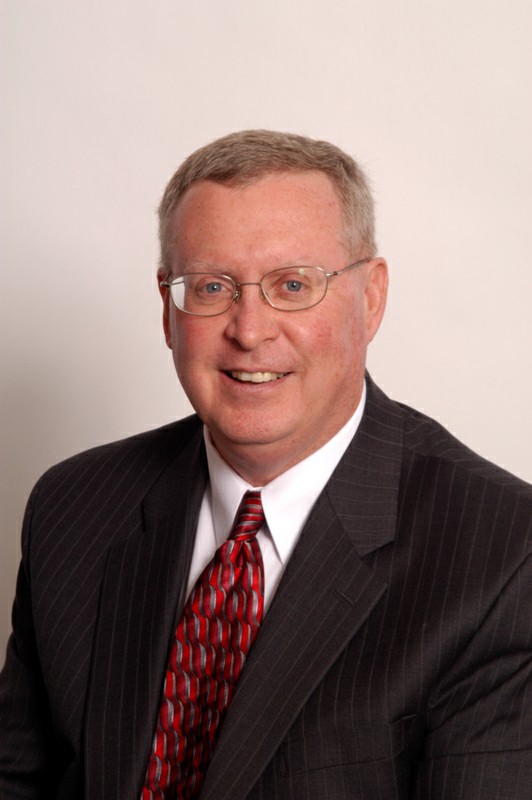 NAMB’s Education Corner: AE Certification
NAMB’s Education Corner: AE Certification
By Bob Sweeney, CRMS
During NAMB’s Wholesale Summit this past September, our wholesale partners requested that NAMB take the lead role in promoting and offering education and certification to all mortgage professionals. It became very clear that they wanted NAMB to create a certification for account executives and offer continuing education (CE) and pre-licensing classes in all states where NAMB state affiliates are not offering classes.
The Education Committee will be starting the AE Certification process very soon. We have suggested to our wholesale partners that we adopt the Certified Residential Mortgage Specialist (CRMS) Certification Exam as the basis for the AE Certification.
At the most recent Wholesale Summit in February, we distributed the CRMS Exam Specifications asking for the input of our wholesale partners. We have requested that they review the content and make suggestions on any changes. We hope to have all of their input very soon and make a decision in the very near future whether to adopt the CRMS Designation for our AE Certification
Why the CRMS exam for AEs? Guy Schwartz, CMC, NAMB Certification Committee Chair, says it best:
“Across the United States, and in a wide range of occupations, certification programs have enabled professionals to distinguish themselves from the competition. As the number of certified individuals has increased, customers and employers have learned to look for credentials when choosing a business partner. By meeting the stringent eligibility standards, passing the rigorous exam, satisfying the recertification requirements, and adhering to the NAMB Code of Ethics, the CRMS certification will enable you to prove your skill and promote your business.
“There has never been a better time for mortgage professionals to seek certification for a number of reasons. Our industry is under increased scrutiny and it is important for those of us who are true professionals to conduct business with honesty and integrity, putting the best interests of our clients at the forefront of all we do. This year, NAMB is working to raise awareness of our credentialing programs to NAMB members, other brokers, and our industry partners. There is no doubt—certification will benefit you professionally.”
We welcome any input from all mortgage professionals or wholesale partners. If you are not a member, now is a great time to become a member. Go to your state association Web site or NAMB.org to join as a Professional Member.
Bob Sweeney, CRMS is senior sales manager at CrossCountry Mortgage, is director on the board of directors for NAMB–The Association of Mortgage Professionals and serves as NAMB’s Education Committee Chair. He can be reached by phone at (317) 625-3287 or e-mail [email protected].
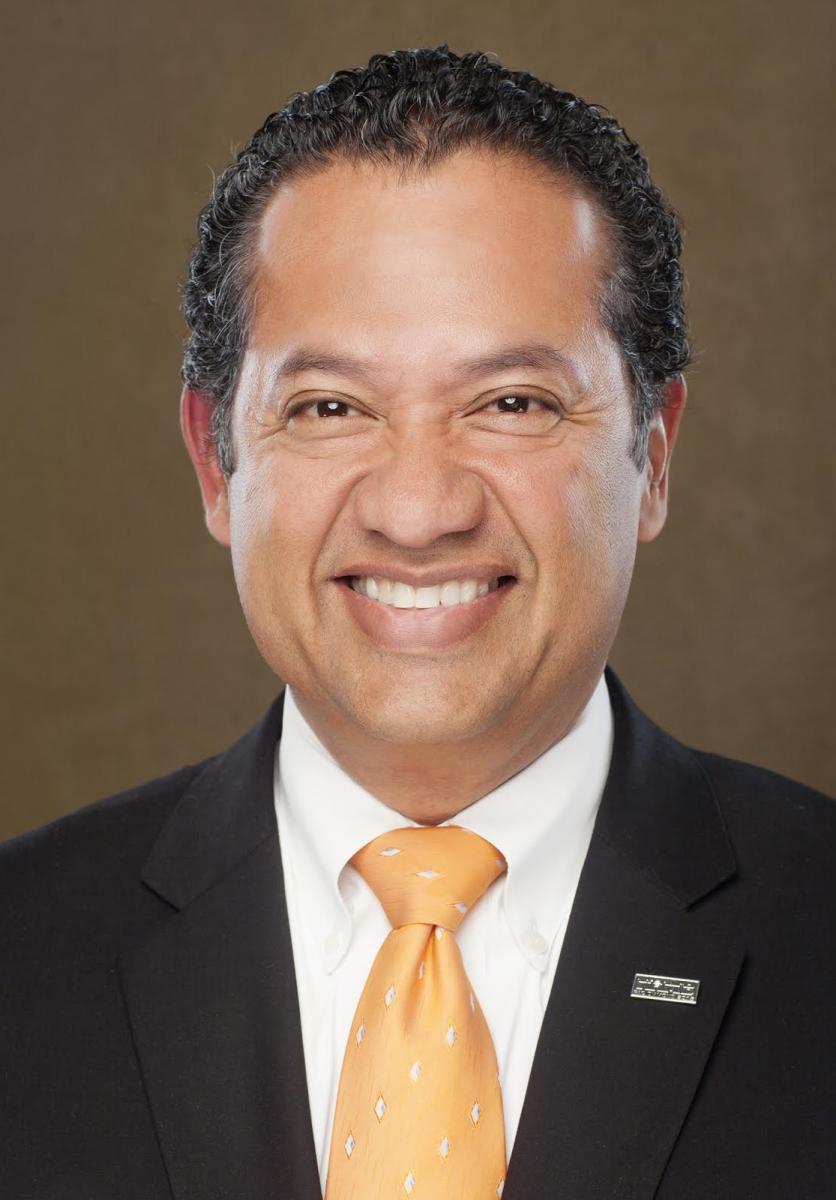 Getting to Know: David Luna
Getting to Know: David Luna
Director, NAMB—The Association of Mortgage Professionals
By Phil Hall
David Luna is chief executive officer of Mortgage Educators & Compliance, an American Fork, Utah-based national education provider of mortgage and real estate professional development and state-approved continuing education. He is also a director of NAMB—The Association of Mortgage Professionals and has been a prominent figure within the Utah Association of Mortgage Professionals (UAMP).
National Mortgage Professional Magazine recently spoke with Luna about his career and his involvement with the industry and its trade associations.
How did you first get involved with the mortgage profession? Was it your original career choice?
Actually, it was. I just returned from a couple of years in the Caribbean as part of a church service mission, and I needed to settle down. I wanted to start a family, and needed a job with flexibility. I am also proficient in several languages, and I went to work at Mellon Bank in Los Angeles because they needed someone who spoke Spanish. This was in 1980 and I have been in the industry ever since.
What roles have you played in the state and national trade groups?
With the Utah Association of Mortgage Professionals (UAMP), I have served as chairman of probably every committee and the statewide president twice. With NAMB, I have been on the Certification Committee, Credit Committee, NAMB National Committee, Membership Committee, and now, I am a member of the board of directors.
What are your duties as a director of NAMB?
As a director, I am currently the Communications Committee chairman, responsible for public relations for the association. I am also on the Technology Committee, where I am overseeing the RFP for the upgrading of the NAMB Web site. I am also involved in putting together a television commercial for NAMB that will be shown on PBS.
Why should mortgage professionals become involved with NAMB?
When it comes to making a change for the better, many people like to think, “Hey, I can do this myself,” but that thought is flawed. If there is a piece of legislation on Capitol Hill, one person’s voice is nice, but if you can combine that with thousands of other voices, it is much more effective. That is why we have an association. One person alone cannot do it—I cannot do it by myself. But if you have an entire group on the same page, you are able to move an agenda forward.
What do you see as the state of today’s mortgage world?
I’ve been doing this for a long time, and I think now is a very good time for refinances. But I hope people understand that the low rates will not last forever. If mortgage professionals use this time to build their business, it could be a fundamental year for the future growth of the industry.
Many in the industry have been concerned about efforts to bring more young people into mortgage careers. How do you view this issue?
More individuals are coming into industry now. But we are seeing a trend regarding the people coming into the industry … they tend to stay together. We see hundreds and hundreds of new people coming in, but they are going to shops that have young people. We are not seeing a lot of new people going into the well-established shops. You can walk into a shop and see hundreds of loan officers, but none are over the age of 35.
Why is this happening?
There are companies that are very successful in attracting individuals because they understand the different mindset of the new young professionals. They’re more tech-oriented, they don’t wear ties to work, and don’t really leave for lunch. They’re aggressive, and want to work hard and work smart. But, yes, there is a division in industry: The older, more established shops can attract young people, but they need to recognize that the young people think differently. They want to make a difference and want to feel their efforts are making a positive effect.
What is the housing market like in the state of Utah?
Utah did not experience the highest of highs and the lowest of lows of several states. We stayed at a steady four- to seven-percent appreciation rate, and we have the highest credit rating in the nation. The state has experienced slow and steady growth. Utah has high job creation—we call ourselves “The Silicon Slopes” because tech companies like Oracle, eBay and American Express have relocated here. Young people come out of college and get jobs where they can make $60,000-$80,000 a year.
There is a problem: There is just not enough inventory. We have a major intersection that goes through the center of the state—the eastern side of the intersection is built up, but on the western side, there is land available for miles and miles and miles. Some builders are a little gun shy about coming back to an industry that was devastated in 2007 and 2008.
We expect to see faster inventory growth to offset demand. Now, some young people are still staying at home after they finish school, but we will see that loosen up.
What do you see as the major accomplishments of your career?
After serving as UAMP statewide president, Gov. Mike Leavitt asked me to be the Commissioner for the Department of Commerce’s Division of Real Estate, a position which I held from 2000-2004. After serving that term, I went back to private practice.
After that, Gov. Olene Walker asked me to serve on the Utah Housing Trust Fund Board, which was tasked with helping homeless veterans and ending chronic homelessness in the state. I am happy to report that we are able to identify all 636 individuals who were left homeless—they were the ones we couldn’t help, but at least we know who they are and how many there are.
In 2012, Gov. Gary Herbert appointed me to state’s Prison Relocation Committee, which was a $1 billion project to move the state prison. I was appointed to help with the project’s real estate loan, title and appraisal expertise for the prison relocation. I’ve also helped in the creation and funding of the Honoring Heroes Foundation, which ensures that the men and women who put lives on the line for us are taken care of when they need our help.
What projects do you have on the horizon?
I am concentrating on Mortgage Educators and Compliance, the NMLS School we are growing. Our goal is to be a top three school by end of the year. We are also launching a school for real estate agents, which we hope will be approved by fall.
You are certainly very busy—how do you spend your leisure time?
I call it The Three Gs: Gardening (I worked my way through college at a nursery), Grandchildren (I have 10 of them) and Golf!
Phil Hall is managing editor of National Mortgage Professional Magazine. He may be reached by e-mail at [email protected].
This article originally appeared in the May 2016 print edition of National Mortgage Professional Magazine.





